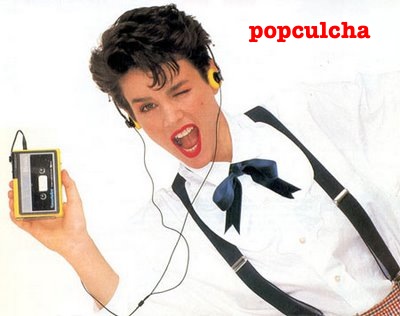Wednesday, May 27, 2015
Marijuana, the beats, and Mezz Mezrow
Wonderful article in the LA Review of Books, by Loren Glass (May 7, 2015).
Some key quotes:
The Beats were the first generation of writers for whom cannabis was central, both to the experiences they recounted and to the prose style in which those experiences were rendered (and, insofar as Kerouac, Ginsberg, and Burroughs frequently wrote while stoned, to their compositional methods as well). Furthermore, cannabis was central to the cross-cultural contacts, not only in Mexico but in the African-American community as well, that informed their countercultural sensibilities...
The central figure for both the culture and the circulation of cannabis in the United States prior to its countercultural apotheosis is the jazz clarinetist Mezz Mezzrow, born Milton Mesirow in Chicago in 1899, who became the principal supplier of Mexican marijuana to Harlem in the 1930s...
Mezzrow, according to Wolfe [who collaborated with Mezzrow on his autobiography], “came to believe he had actually, physically, turned black,” and is both an underappreciated inaugural example of Norman Mailer’s “White Negro” and a crucial antecedent to the Beat fascination with jazz and African-American culture more generally. Really the Blues, which went through numerous printings and was read by all the Beats, reveals how crucial marijuana use was to this well-known cross-cultural and, for the most part, homo-social complex...
Most significantly, though, Really the Blues illustrates a somewhat underappreciated claim in “The White Negro”: there Mailer calls marijuana the “wedding ring” in the interracial marriage whose “child was the language of Hip"...Mezzrow represents jive as emerging due to cannabis, which is why much of its vocabulary refers to the substance that at least partially enabled it.
Marijuana was also crucial to the music...
Marijuana also facilitated cultural exchange...
Mezzrow’s marijuana network was legal until 1937 when, after aggressive lobbying on the part of Commissioner of the Bureau of Narcotics Harry Anslinger, Congress passed the Marijuana Tax Act, making cannabis illegal across the United States. Soon after, in 1940, Mezzrow was arrested. In jail, he insisted on being housed with the African-American inmates, with whom he promptly formed an interracial band. Their jamming was enhanced by marijuana smuggled into the jail by Mexican-American WPA workers running a sewer pipe under the building...
...as Really the Blues amply documents, cannabis was crucial in establishing the social networks, cultural contacts, insider vocabularies, aesthetic styles, and compositional techniques that the Beats would introduce by way of the counterculture into the American mainstream. Cannabis was central to, as Mezzrow put it, “a whole new language.”
Saturday, May 23, 2015
Riots at Newport Jazz Festival, caused by..."Gidget," "A Summer Place," and "Jazz on a Summer's Day"
These would appear to be the most anodyne of pop culture artifacts, the antithesis of what would cause a riot. I mean, Gidget?
As for the other two films: 'Also at movie houses that spring was "A Summer Place," starring Troy
Donahue and Sandra Dee as teenage lovers rebelling against hypocritical
parents. Percy Faith's yearning instrumental, "Theme From a Summer
Place," was No. 1 on Billboard's pop-singles chart for a staggering nine
weeks.
And then there was "Gidget." Released a year earlier, the film starred Sandra Dee and was the first in a series of popular teens-know-best beach films. While the Beach Boys' first hit song was still nearly two years off, "Gidget" instantly established the beach as a teenage proving ground.'
A Summer Place?
Jazz on a Summer's Day? (A documentary of the 1958 Newport Jazz Festival.)
An article in the Wall Street Journal called "Riot in Newport" (July 1, 2010), explains.
As for Jazz on a Summer's Day: 'Filmed at the 1958 Newport Jazz Festival, "Jazz on a Summer's Day" was
released in late March 1960. The color documentary glamorized jazz and
its hip audience, inadvertently creating the impression that seating was
limitless and free.' It does look terminally cool, especially the footage of Anita O'Day (above). To me, that's the most memorable segment of the film.
And then there was "Gidget." Released a year earlier, the film starred Sandra Dee and was the first in a series of popular teens-know-best beach films. While the Beach Boys' first hit song was still nearly two years off, "Gidget" instantly established the beach as a teenage proving ground.'
Tuesday, May 19, 2015
Don Letts' Documentary, "Punk Attitude"
According to Dangerous Minds: In this fine documentary directed by Don Letts (who knows a thing or
two about punk rock) a bunch of aging punkers talk about the roots of
the punk scene and their love of the music they make. There’s not much
new here but it’s good to see Steve Jones, Pete Shelley, Howard Devoto,
Siouxsie Sioux, Captain Sensible, Mick Jones Jones,David Johansen, Jello
Biafra, Wayne Kramer, Thurston Moore, Legs McNeil and Tommy Ramone,
among many others, wax poetic about the music explosion that was
detonated in the mid-70s. It’s amazing how many survived. And deeply
saddening that since this film was made in 2005 we’re down to zero
original Ramones.
“Punk is not mohawks and safety pins. It’s an attitude and a spirit, with a lineage and tradition.” Don Letts.
Subscribe to:
Posts (Atom)

